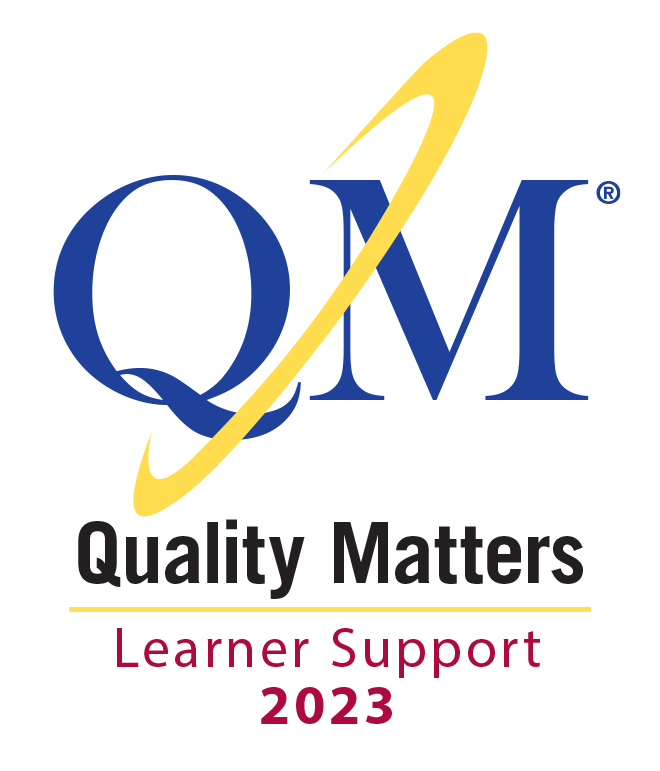Questions? Request Information
Certificate Completion Journey
Learn tested and proven approaches in education and gain valuable classroom experience in your post-baccalaureate certificate program. Your courses will cover topics like behavior management, reading and writing strategies, as well as assessing and serving the diverse needs of students and families. Complete the certificate journey by focusing your coursework on your desired career path in either elementary or secondary education.
Post Baccalaureate Teaching Certificate Graduation Requirements
To be eligible for the Post Baccalaureate Teaching Certificate, students must:
- Complete all required coursework (27 credits for Post Baccalaureate Teaching Certificate - Elementary Education or 24 credits for the Post Baccalaureate Teaching Certificate - Secondary Education).
- Pass the Subject Area Examination, General Knowledge Test and Professional Education Test.
- Complete all Student Teaching requirements.
- A minimum cumulative grade point average of 3.00 in all coursework attempted at the University.
The program of study will be noted on the transcript as a Post Baccalaureate Teaching Certificate – Elementary Education or as a Post Baccalaureate Teaching Certificate – Secondary Education.
Note: The date of conferral recorded on the student’s transcript will reflect the date the student completes all academic certificate requirements. However, verifications for certificate completion are contingent upon payment of any outstanding balances with the University.
The Post Baccalaureate Teaching Certificate program is currently open to Florida residents only. It is not eligible for Title IV, VA or Tuition Assistance funding. Applicants seeking admission to any Post Baccalaureate program are required to meet the following requirements prior to enrollment:
- Have a Bachelor's or graduate-level degree from an approved accredited college or university with a grade point average (GPA) of 3.0 or higher on a 4.0 scale in the content courses applicable to the certificate being sought.
- Submit the Statement of Eligibility (SOE) from the Florida Department of Education (FLDOE).
- Provide a two- to three-page professionally formatted letter of intent which explains why they aspire to enter the teaching profession and which includes their philosophy of education.
Demonstrate a “good fit” disposition toward the teaching profession by earning a passing score on the Candidate Disposition Self-Assessment (Attachment 01), which measures the following:
- Professional and Ethical Conduct
- Communication and Collaboration
- Individual and Cultural Sensitivity
- Work Habits and Emotional Management
- Self-Reflection and Professional Development
- Effective Learning Environment
- Submit to and pass a Criminal Background Check.
- Candidates who have criminal history will meet with the certificate analyst to determine whether they have committed a disqualifying offense.
- Candidates may be referred to the Office of Professional Practices for a more detailed review and determination.
- Sign an agreement that expresses the understanding of the guidelines and demands for the required field experience hours.
- Have the ability to study in English indicated by one of the following:
- Earned a Bachelor’s degree in which the primary language of instruction was English; or,
- Successfully completed one of the following testing options within the approved timeframe as noted below as applicable. Copies of unofficial scores must be submitted prior to conditional admissions, and official scores must be submitted for full admission:
- Test of English as a Foreign Language (TOEFL). A minimum score of 550 paper-based or 79 Internet-based is required and the test must have been taken within the last two (2) years.
- International English Language Testing System (IELTS). A minimum score of 7 is required and the test must have been taken within the last three (3) years.
- Pearson. A minimum score of 60 is required.
- Have access to a computer with an Internet connection for the Web-based programs and meet the minimum technology and minimum computer skills, abilities, features, system configurations, hardware, and software outlined in the Catalog;
Additional requirements for students seeking admission based on credentials earned outside of the United States are outlined in the University of Arizona Global Campus Academic Catalog at https://www.uagc.edu/catalog
The Post Baccalaureate Teaching Certificate program is a Florida state-approved educator preparation institute (EPI) program designed to meet the state educational requirements for teacher licensure in the state of Florida. Students who successfully complete all Post Baccalaureate Teaching Certificate requirements, are US citizens, and pass all three portions of the Florida Teacher Certification Examination (FTCE) will qualify for a Florida Professional Educator’s Certificate. Students can earn the Florida Professional Educator’s Certificate in one of forty-two subject areas (valid for five (5) years) and a Florida Reading Endorsement Certificate. The University of Arizona Global Campus team can work with students to complete and submit all necessary forms to the Florida Bureau of Educator Certification. The Florida Department of Education’s process is to notify program completers to submit fingerprints for background clearance. Following clearance, the Florida Department of Education awards program completers the Florida Professional Educator’s Certificate in the subject area for which it was earned and send a hard copy of that certificate to the program completers as proof that professional teaching credentials have been obtained. The University of Arizona Global Campus does not grant the teaching credential.
This program is not designed to meet the state educational requirements for teacher licensure in any state other than Florida. For additional information regarding professional licensure, please visit https://www.uagc.edu/disclosures/state-authorization/professional-licensure.
Reciprocity: Program completers who earn Florida Professional Educator’s Certification and are interested in reciprocity are responsible for completing the reciprocity licensure process.
Program completers must research reciprocity requirements according to the NASDTEC interstate agreements. The University of Arizona Global Campus can assist in providing information on the necessary paperwork required by the receiving jurisdiction to assist program completers in obtaining reciprocity to their home state. Program completers must know that certificate completion alone will not lead to immediate teacher licensure.
The table below provides the university’s determination regarding whether the Post Baccalaureate Teaching Certificate program will meet professional teacher licensure requirements in each of the states.
For additional information regarding professional licensure, please visit https://www.uagc.edu/disclosures/state-authorization/professional-licensure.
The Online Teaching Support Certification recognizes programs that require all online faculty to undergo training in best practices for online course delivery, provide faculty with ongoing pedagogical support, encourage faculty professional development to increase their knowledge and skill in online teaching, emphasize instructor availability and feedback to learners, and collect and use feedback from learners to improve online teaching. Learn More

The Online Learner Support Certification recognizes programs that provide all the critical student and academic services needed for learner success and use learner feedback to continuously improve those services.

Careers Related to Post Baccalaureate Teaching Certificate


U.S. Department of Labor data regarding salary ranges and job growth projections are national in nature and do not guarantee employment, any specific salary, or job growth. Also, national long-term projections may not reflect local and/or short-term economic or job conditions. Top Skills are provided via Lightcast job postings data and may not align with UAGC program learning outcomes. UAGC programs are not designed to meet the state educational requirements for a specific professional license or certification in any state. UAGC does not guarantee employment placement, any specific salary from employment, or career advancement.

